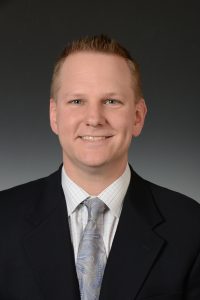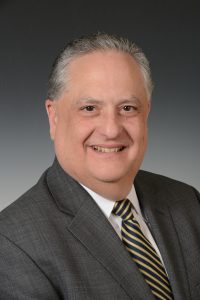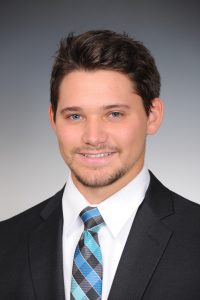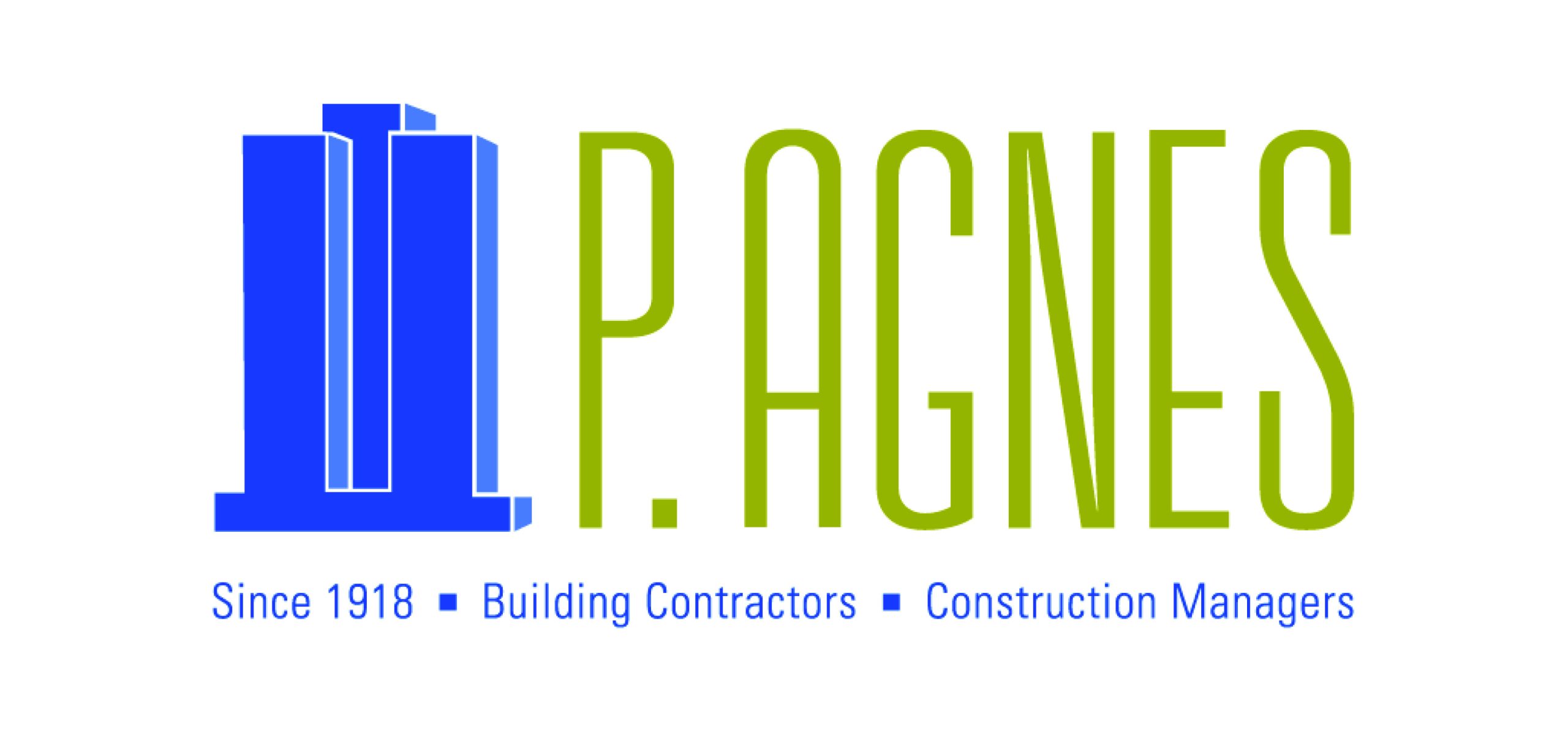Engineers Week is a time to celebrate the field of engineering and engage the next generation of innovators. Engineers are changing the world around us, and earning an engineering degree can open up a variety of career opportunities to be a part of the change. In honor of Engineers Week, we’re spotlighting a few of our employees who received their engineering degree and are using those skills in a number of different roles at P. Agnes.

Craig Hall, Senior Project Manager
Why did you decide to pursue an engineering degree? As a high school student in upstate New York, I was fortunate enough to attend a school that offered a wide variety of elective classes geared toward all of the major science and mathematical career paths. In the 9th grade, I took an engineering design and drawing class because it seemed interesting, little did I know it would be the foundation for two Drexel University engineering degrees and a career in the construction industry.
What is your role at P. Agnes? I’m a Senior Project Manager and responsible for overseeing all of the P. Agnes projects at AtlantiCare and Cape Regional Health systems.
Has your engineering degree been beneficial for your career path? If so, why? Having an engineering degree isn’t considered a prerequisite for the construction industry but it does show potential employers that you have dedicated yourself to acquiring a level of educational achievement that’s very difficult to obtain. Regardless of which concentration you choose, engineering curriculums are designed to teach students to solve problems through a foundation of critical thinking and collaboration. This approach to problem solving is a valuable skill to have regardless of the career path you choose.
What advice would you give someone considering an engineering degree? The pursuit of an engineering degree isn’t something to be taken lightly but don’t approach this journey with a singular focused goal in mind. Allow your interests, skills, and passions to steer you toward the best possible career path for you regardless of what you thought you want to be when you applied to the engineering college. Not everyone will get the opportunity to design the next skyscraper regardless of what your guidance counselor told you.

Matt Lane, Estimator
Why did you decide to pursue an engineering degree? I decided to pursue an engineering degree because math had always come easy to me and I found construction interesting.
What is your role at P. Agnes? Junior Estimator. I review drawings, subcontractor quotes, and submit proposals to potential clients.
Has your engineering degree been beneficial for your career path? If so, why? Yes, I have a civil engineering degree with a concentration in construction management. Many of the subjects I was learning in school I still use today such as estimating and scheduling.
What advice would you give someone considering an engineering degree? Success in engineering is not just about being good at math. Work on your writing and public speaking. All of the knowledge in the world is worthless if you can’t convey it to others.

Glenn Manning, Vice President of Estimating
Why did you decide to pursue an engineering degree? I started out wanting to follow a childhood dream of becoming a Forest Ranger. Late in my high school career it become apparent that due to an ability to skate backward and use my hips to bounce people off of glass, I was going to be the first member of my family to attend college. I knew this opportunity required me to make a selection that would stick. Having lost my father at a young age, I surveyed my aunts and uncles as to what they did for a living. As it turned out, I had three uncles that were construction estimators. Suddenly years of playing with erectors sets and tinker toys looked like it would pay off. My uncles steered me towards a degree in a new program called Architectural Engineer. The goal of the program was to develop estimators and project managers that could interpret the two completely different languages spoken by architects and engineers.
What is your role at P. Agnes? I have always thought my role in Preconstruction was to work collaboratively with owners so they can achieve their goal, architects so they can achieve their vision, and our staff so that the buildings could actually be built. I still think of myself as quarterbacking the power play from the backline.
Has your engineering degree been beneficial for your career path? If so, why? My educational background in Engineering has been extremely helpful in the way I analyze and solve problems. It taught me the skills of critical thinking. The University of Colorado program had a strong emphasis on structure. I think my knowledge of structure contributed to me steering design teams to use girder slab at Drexel North Hall, masonry bearing and plank at West Chester dorms, the aluminum sun screen at UPenn’s NBS Building, and the metal stud bearing and plank at the Ronald McDonald House. Although I never pursued a professional license in either Architecture or Engineering, I think I have left my stamp on my buildings built by P. Agnes.
What advice would you give someone considering an engineering degree? Take a year off prior to college. Travel, work odd jobs and learn about the world before pursuing an education. This will better prepare you to deal with people and know what world problems you as an engineer want to be involved in solving. Engineering has many options. Wait until after a year of study before deciding which discipline you may want to pursue.

Bill Long, Associate Vice President
Why did you decide to pursue an engineering degree? I had developed an interest in ‘building things’ – specifically buildings. I was intrigued by ‘how they were put together’ – especially from a structural standpoint. After initially majoring in architecture in college, I realized that an architectural engineering degree would be more appropriate for my interests and my skill set.
What is your role at P. Agnes? I am responsible for business development and marketing at P. Agnes. As such, I am often the first P. Agnes employee that a potential client interacts with from the firm. Being able to establish a level of credibility due to my technical background is critical to achieving success in this role.
Has your engineering degree been beneficial for your career path? If so, why? Definitely. Since I initially was a structural engineer, (designing buildings, etc.) it obviously was beneficial. However, after a number of years designing buildings and obtaining my Professional Engineering license, I was able to apply that knowledge to the construction side of the building team. Now, after over 30 years of experience, the knowledge that I learned from my engineering degree has formed the foundation that has allowed me to continue to expand my knowledge and advance my career simultaneously.
What advice would you give someone considering an engineering degree? Get it! Your education is something that can never be taken away from you. But, I would also suggest that you combine that academic education with practical experience. Depending on your major and your engineering focus, apply your skills at designing things, work on a construction site, spend time in a manufacturing setting, etc. so you can obtain the practical skills that will make you even more valuable to a potential employer.

Christian Hochstetler, MEP Project Manager
Why did you decide to pursue an engineering degree? Engineers learn how to solve problems that have influence in the world we live in. The draw to engineering for me was that I could be a part of those solutions and help the people that are impacted by these problems.
What is your role at P. Agnes? My role at P. Agnes is MEP Project Manager. I wear a lot of hats associated with this role, but it is mainly managing the installation of the electric, plumbing, HVAC, etc. utilities in new and renovation construction.
Has your engineering degree been beneficial for your career path? If so, why? The most beneficial aspect of my engineering degree in the construction field is being able to utilize the mechanical design knowledge I’ve acquired to come up with effective solutions that can help expedite resolution of problems. Having both the design experience in school and the more hands-on approach on a job-site gives me added tools to be able to pursue solutions that might not be as obvious to someone that is strictly construction or strictly engineering.
What advice would you give someone considering an engineering degree? Engineering is a vast discipline with almost unlimited potential. My advice to anyone considering a degree in engineering is to not focus on one aspect too early in your learning. Trying new things and learning about other disciplines can help you find your passion, and will greatly help you later in your career. Often times there is overlap in any field of engineering. The knowledge you acquire about other fields will put you that much further ahead in your own.

Mike Eder, Estimator
Why did you decide to pursue an engineering degree? I chose to purse engineering because as a kid my father was a carpenter and would sometimes take me to job sites and I always was interested in how things were built. I even used to take apart my broken toys or electronics as a kid to try to fix them. In grade school and through high school I always seemed to do better in the math and science classes because I found problem solving how things worked interesting. When it was time to choose a career path and go off to college it made sense for me to follow something in math in science. I applied to all tech/engineering schools and ended up at Drexel University. As I followed that path, I wound up pursing Civil Engineering because it seemed to have the largest array of things you could do and I had a little fascination with bridges and structures, so it made sense.
What is your role at P. Agnes? My role here as a project estimator is to prepare construction budgets, competitive bids, and also procure the subcontracts for projects that we build. To complete these tasks, as with any of the other estimators, we have to spend a lot of time reviewing and writing scope from the drawings and specifications for the projects, as well as maintain good relationships with our trade partners and have the ability to negotiate.
Has your engineering degree been beneficial for your career path? If so, why? Yes, I think my engineering degree has helped me immensely in this industry because we deal with a lot of numbers and scope for these projects that we build. The engineering background gives you a solid math understanding from a lot of different perspectives which helps in dealing with certain aspects of building projects such as mechanical systems, electrical systems, fire protection systems, and specialty trades. As an estimator with an engineering background, you are looking at things through those goggles so to speak, so when you are review plans for a complicated new building you can understand why the designers do certain things and you can also engage in valuable interactive conversation with the design teams when difficult coordination or design changes are being discussed. Having the engineering background allows me to engage with the design teams on an equal level, which gains both respect and offers the design team back construction experience creating a collaborative environment.
What advice would you give someone considering an engineering degree? My advice would be to strongly consider it because even if you decide later in life to pursue a different career, I feel that an engineering degree provides you with a skill set that can help you be succeed in just about anything.



Comments are closed